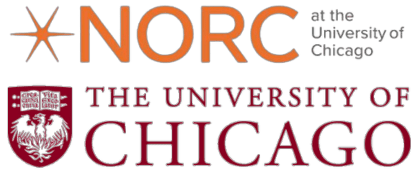Individuals with substance use disorders and mental illness face greater stigma than those with other illnesses. The negative effects of stigma can contribute to poor mental and physical health, lower participation in treatment, barriers to accessing health care and treatment services, and delayed recovery.
To assess how stigma changes overtime, the NORC at The University of Chicago is conducting a study to measure public support for opioid use disorder (OUD) treatment, assess stigma associated with OUD, and assess perceptions of criminality around OUD. This study will use a nationally representative survey panel and will administer short surveys twice a year for a total of five years. The data collected from this study will allow for a better understanding of the public’s opinion on issues related to OUD, stigma, and the justice system and how perceptions change over time.
Study Findings:
- NORC (February 2020). The general public’s views towards opioids and core JCOIN items: An AmeriSpeak Omnibus General Population Survey 1. Chicago, IL: NORC. (PDF)
- NORC (April 2020). The COVID-19 pandemic and prior justice system involvement and history of opioid use and JCOIN core items: An AmeriSpeak JCOIN Omnibus General Population Survey 2. Chicago, IL: NORC. (PDF)
- NORC (June 2020). The general public’s views towards recovery and treatment from opioid use disorder and JCOIN core items: An AmeriSpeak JCOIN Omnibus General Population Survey 3. Chicago, IL: NORC. (PDF)
Publications:
- Results from the NORC’s AmeriSpeak Stigma Survey 1 on the General Public’s Views Towards Opioids (February 2020)
- Results from the NORC’s AmeriSpeak Stigma Survey 3 on the General Public’s Views Towards Recovery and Treatment from Opioid Use Disorder (June 2020)
- Opioid Use Disorder Stigma, Discrimination, and Policy Attitudes in a National Sample of U.S. Young Adults (2021)
- National variability in Americans’ COVID-19 protective behaviors (2021)
- Social stigma toward persons with opioid use disorder: Results from a nationally representative survey of U.S. adults (2021)
- Partner seeking and sexual behavior in the United States during the COVID-19 pandemic, March 2020—March 2021 (2020-2021)
- Predictors of mental health among the general population of US adults 8 months into the COVID-19 pandemic (2022)
- Support for evidence-informed opioid policies and interventions: The role of racial attitudes, political affiliation, and opioid stigma (2022)
- Individual, interpersonal and neighborhood measures associated with opioid use stigma: Evidence from a nationally representative survey (2022)
- A National Portrait of Public Attitudes toward Opioid Use in the US: A Latent Class Analysis (2023)
- Latent class analysis of medical mistrust and COVID-19 vaccine hesitancy among adults in the United States just prior to FDA emergency use authorization (2023)
- Gender identity, stimulant drug use, and criminal justice history on internalized stigma among a nationally representative sample of adults who misuse opioids (2023)
- Openness to change among COVID misinformation endorsers (2023)
- Associations between partisan media consumption, opioid use disorder stigma, and opioid policy support: An exploration of the media’s role in the ongoing opioid epidemic (2023)
- Endorsement of COVID-19 misinformation among criminal-legal involved individuals in the US (2024)
Study Team
PI: Bruce Taylor

• Understand the stigma levels that the general public attributes to individuals with an OUD
• Assess the general public’s knowledge base and awareness of addiction and opioid treatment
• Examine the public’s attitudes towards OUD, OUD treatment, and how it varies by knowing individuals who have overdosed
• Examine the public’s perceptions of criminality around OUD and appropriateness of justice interventions
Survey

